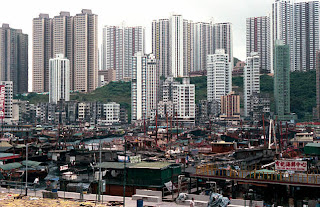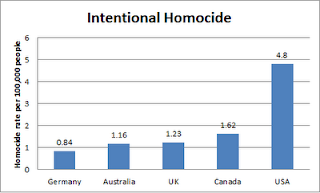To many people America has been a beacon of hope and
democracy for generations, the reason why it was nicknamed “the land of the
free”. When most of Europe had to deal with dictatorships and then the division
of the Cold War, America looked ideal. This is not the case anymore, according
to Freedom House, of the 47 European nations only two are rated as not free,
six as partly free and 39 as free. Considering that most people believe that
the decision to put Russia in the “not free” camp is ridiculous, this is quite
an impressive turnaround!
After the Republicans took control over many state
legislators, senates and governors’ offices there has been a sweeping number of
voter restricting reforms. The map below shows the states in which these
restrictions have been passed! One of the most common voter restrictions is to
begin to demand photographic ID to be able to vote. The Republicans say this is
to combat voter fraud, but they have no evidence of any voter fraud taking
place in any significant amount across all 50 states. The problem that Democrats have with this is
that many people, particularly students, ethnic minorities, and seniors do not have
“appropriate” photographic ID. These groups, with the exception of the latter,
vote by a wide margin, with the Democrats, in the 2008 Presidential Election,
Obama took 96% of the black vote! Now, you might think that this targeting of
Democratic voters is just coincidental, well not according to some, the Republican
Pennsylvanian House Majority Leader, Mike Turzai, has been caught saying that
Voter ID will “help Romney win Pennsylvania”… Don’t you mean stop voter fraud?
The issue is that many of the groups harmed by the law are too poor to afford
the acceptable forms of ID that they now require, this means they are stopped
from voting due to the nature of them being poor. Now I do believe that photographic
ID should be required to vote, but I also believe that the government should
provide free forms of ID. This would allow the Republicans to say they’ve
stopped voter fraud without trying to illegally remain in office as long as
they can by restricting people’s constitutionally protected rights.
There are other ways in which American democracy really isn’t
that great, the system by which the elect presidents is totally un-democratic
and the way in which the Senate is run isn’t great either. Everyone knows the result
of the famous 2000 Bush vs Gore election. Gore won 500,000 more votes than
Bush, yet Bush was named president because he won more electoral colleges. If
you’re not American you’re probably a bit confused, basically each state is
allocated a number of electoral colleges, whichever presidential candidate receives
the most votes in that state receives all the electoral colleges. Yet this is
not an entirely fair system, the graph below (courtesy of Wikipedia) shows each
state and the amount of votes per-electoral-college
As you can see this system favours the smaller states over
the larger ones, the system needs reform, I don’t see why the person who wins
most votes becomes president. This would stop any future chance of scandals
like the 2000 race.
Senate seat allocation gives even more preference to smaller
states. According to the American constitution each state is allocated two
senators regardless of population, this gives a massive advantage to smaller
states. For example in America’s least populous state, Wyoming, the
population-per-Senator is roughly 280,000. Whereas in America’s most populous
state, California, the population-per-Senator is roughly 18.5 million! This
means your vote in Wyoming is the equivalent to 66 Californian votes! Although
this seems stupid, the system does have its merits, its allows for the smaller
states to have a real voice in politics, which I believe is a good thing.
The major problem in the Senate is the filibuster, if a law
has the consent of the president, the support of a majority in the House of
Representatives and the Senate it can still be blocked. Only 26 senators (just
over a quarter of the total) can filibuster or block a law, this has cause
congress to grind to a halt in the past four years. Republicans in the Senate
have filibusters many pieces of Obama legislation. One of the major issues with
this is because each state gets two senators, if the thirteen smallest states
club together, they can block a law that the other 37 wish to pass. Considering
that the smallest 13 combined make up only 4.6% of the total population, this
makes it extremely undemocratic. Although this is purely theoretical, as the
smallest states include some very Republican and some very Democratic states,
it nonetheless should not be able to happen.











